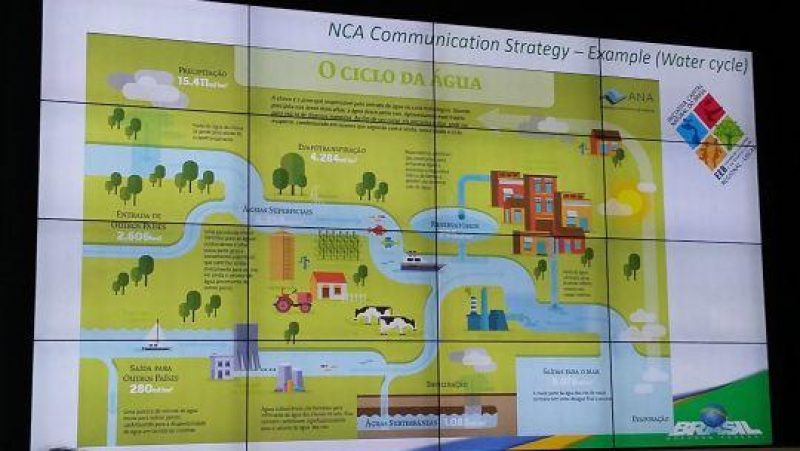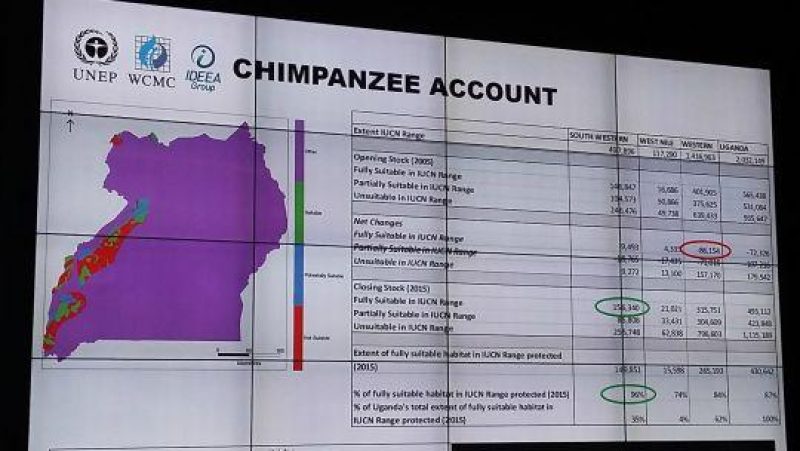Making the link between the SDGs and natural capital accounting

There is a risk that policymakers working on the Sustainable Development Goals see the 17 goals as 17 separate issues and fail to integrate efforts to achieve them. Rosalind Goodrich from GEC founding member the International Institute of Environment & Development (IIED) reports on a forum that looked at how natural capital accounting can encourage an integrated approach to achieving the SDGs and provide useful information for policy decisions.
How do you raise the profile of natural capital accounting (NCA) with policymakers when the very term means different things to different people and makes some people switch off?
This was a question asked at the second forum on natural capital accounting for better policy, hosted by the Dutch Ministry of Foreign Affairs in The Hague in late November. The forum brought together 50 participants from 20 countries to share their experiences on using NCA, and how to take the next step in making it more relevant for policy.
Communications was a hot topic, but the overall framing for conversations over the course of two days was the link between natural capital accounts and realising the Sustainable Development Goals (SDGs).
We heard from Bram Edens, senior statistician at the UN Statistics Division, about how accounts can be a useful tool to monitor progress against SDG indicators, with the System for Environmental Economic Accounting (SEEA)providing a structure that delivers consistent, comparable information from one year to another. This was seen to be especially important when there is no method for measurement yet worked out for more than one third of SDG indicators.
But natural capital accounting can do much more than monitoring – it helps the whole 'policy cycle'.
Trade-offs are an unavoidable part of policymaking – it's a question of fully understanding what's possible, and minimising any negative impacts in order to come up with the best overall outcome. Arjan Ruijs, from the PBL Environmental Assessment Agency, Netherlands, showed how natural capital accounts can inform these debates and highlight relevant synergies between different courses of action. This is vital when the overall aim of achieving the SDGs is to 'leave no one behind'.
Policy application of NCA for public and private sectors
Interspersed throughout the programme were case studies of where accounts are beginning to inform policy: the revised water masterplan in Botswana, forest policy in the UK, land use planning in Rwanda, for example. And in the private sector, the coffee business in Indonesia.
Indeed, the involvement of representatives from the private sector was a valuable addition to the agenda and a direct result of actions agreed in the first 2016 policy forum.
Hannah Pitts, from the Natural Capital Coalition, showed through her highly visual presentation how NCA could prove to be the tool for integrating business with the SDGs, using accounts information to make the link between industry CO2 emission targets and health and wellbeing indicators.

This led into a wider discussion on the role of NCA in green growth and poverty reduction strategies.
To be effective, NCA needs to be better at covering spatial and distributional issues, as national-level averages can be biased against certain people and places. Participants acknowledged that poverty reduction is rarely solved by technocratic 'planning' alone. Rather, it is a highly political process involving business and civil society too, meaning that NCA must also look beyond government by expanding its accessibility to many, including poor communities.
Another set of case studies was discussed on the second day of the forum. In England, forest accounts have been a revelation for Forest Enterprise England Board members' understanding of forest assets, the many values they produce, and consequently where to invest.
In Australia, timber, water and biodiversity accounts are profiling potential trade-offs that need to be managed. In South Africa, ecosystem accounts could help guide spatial planning, improved water security, investments in ecosystem restoration, and the expansion of protected areas. And in Uganda, chimpanzee accounts can monitor progress against the country's National Biodiversity Strategy and Action Plan, internationally agreed Aichi targets, and tourism policy.

Further examples from Botswana, Indonesia, Rwanda and Australia set out in more depth the role of NCA in the government decision-making machinery. In addition, a detailed session on modelling trade-offs using natural capital accounts, with an example from Costa Rica looking at the impact of tax exemptions on use of electric vehicles, engaged the statisticians and economists in the room and brought us to the final session on 'the way forward'.
The way forward
There is no doubt that one focus for further work over the coming year is to strengthen the communications around NCA, not only to inform how to communicate and engage with audiences about existing accounts in a relevant way, but also to be a driver for deciding what accounts to prepare in the future.
Other take-aways include the need to strengthen links between business-level and national-level natural capital accounting, and carry out more research on making the crucial links between NCA and the SDGs; guidance materials are already being to help this process along.
Overall, the forum was another successful event with a high level of participation and optimism about what is beginning to be achieved, but also a realistic view on what still needs to be done, and plenty of ideas for the third policy forum in 2018.
Rosalind Goodrich (rosalind.goodrich@iied.org) is head of research communications at IIED.
This article is reposted with permission from the IIED website. Image credits: Adi Constantin on Unsplash; Rosalind Goodrich / IIED


